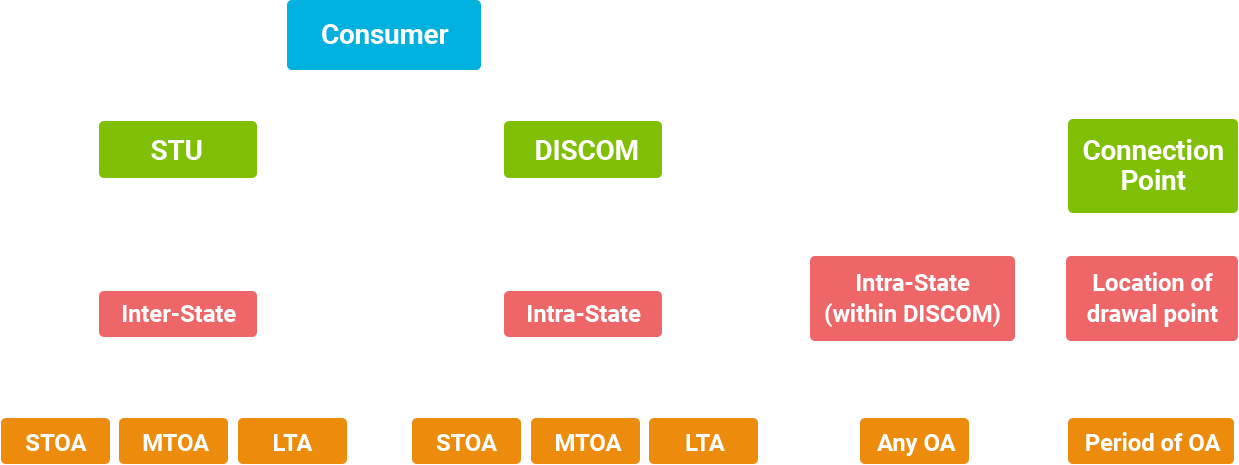WHY/WHO MIGHT NEED IT?
If you are a heavy user of power, then this service will make your pocket thank you. Open Access enables heavy users to buy cheap power from the open market. The concept is to allow the customers to choose from several competitive power companies, rather than being forced to buy power from the local utility monopoly. It not only helps the industrial and commercial consumers by ensuring regular electricity supply at competitive rates but also enhances the business of power markets and also would bring the costs down. Another feather on its cap is that it also helps consumers meet their Renewable Purchase Obligations (RPOs) as well.
A consumer with a bulk load can avail the benefits of cheap and green solar power by either purchasing through the rooftop solar installation in its premises or buying from an offsite solar farm / Wind farm under open access. While open access does away with limitations of rooftop solar such as scalability and high capital expenditure, it is often exposed to unpredictable grid risks.
HOW IT HELPS
Open Access will ease the power shortage since several power producers like Solar & Wind energy companies can now transmit power from their solar or wind parks to different load centres. Open Access rights in India are governed by the Electricity Act 2003 which has laid down regulations for competition in the power market. Based he location of the purchasing and selling entities, Open Access can be classified as follows:-
INTER-STATE OPEN ACCESS
In this, the purchasing and selling entities belong to different states and they have to follow Central Electricity Regulatory Commission (CERC) regulations. The purchase rights under inter-state open access can be for Short Term i.e. for less than a month, Medium Term i.e. for 3 months to 3 years period and Long Term i.e. for twelve to twenty-five years period.
INTRA-STATE OPEN ACCESS
As evident from the name, the purchasing and selling entities, in this case, belong to the same state. It follows State Electricity Regulatory Commission (SERC) regulations. It can also be classified as Short Term, Medium Term and Long Term where the durations of these terms vary based on the regulations of respective states.

The buyer and seller of electricity can opt for either collective or bilateral transactions. In collective transactions, the trading of electricity is facilitated through exchanges with a very small margin fixed towards exchange members. In the case of a bilateral transaction, a Power Purchase Agreement is signed between the seller and the consumer for buying power at a mutually agreed tariff for a predetermined number of years. Many of the leading solar players under the OPEX model in India are resorting to bilateral agreements for tariff determination with commercial and industrial clients.
SCOPE OF SERVICES
- We identify the best buyers/sellers to sell/purchase the solar or wind power under a third party or group captive mechanism.
- Loading the profile analysis of identified buyers and suggesting the required quantum of power that can be supplied as per DOA regulation and banking facility under a suitable power purchase mechanism.
- Preparing the cost-benefit analysis sheet for both buyer and seller; to understand actual tariff.
- Preparation and submission of Power sale proposal and finalisation of power sale to Buyer in consent with seller including the bilateral agreement.
- Licensing for obtaining approval at all nodal agencies for the sale of power under Open access at Buyer/seller’s cost helping with documents needed for open access practice.
- Coordination with MSEDCL H.O, Circle office, for open access NOC’s and related work.
- Power sale billing, collection and depositing at owners/seller accounts.
- Coordination with Consumer for compliance of ABT metre (REI-INFRA provide a separate quote for Supply, Installation and related licensing services to get eligible of Open access power Purchase).
